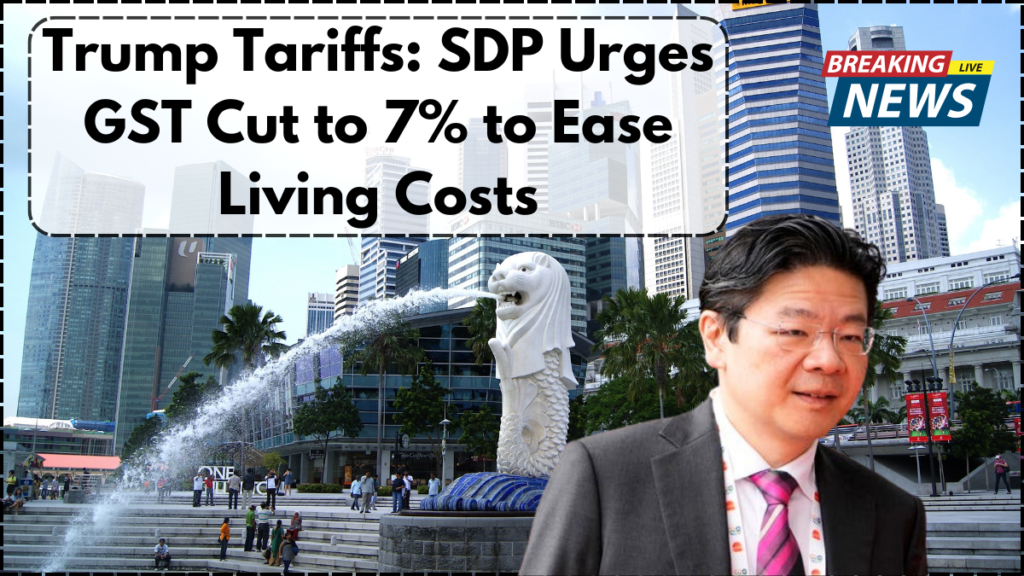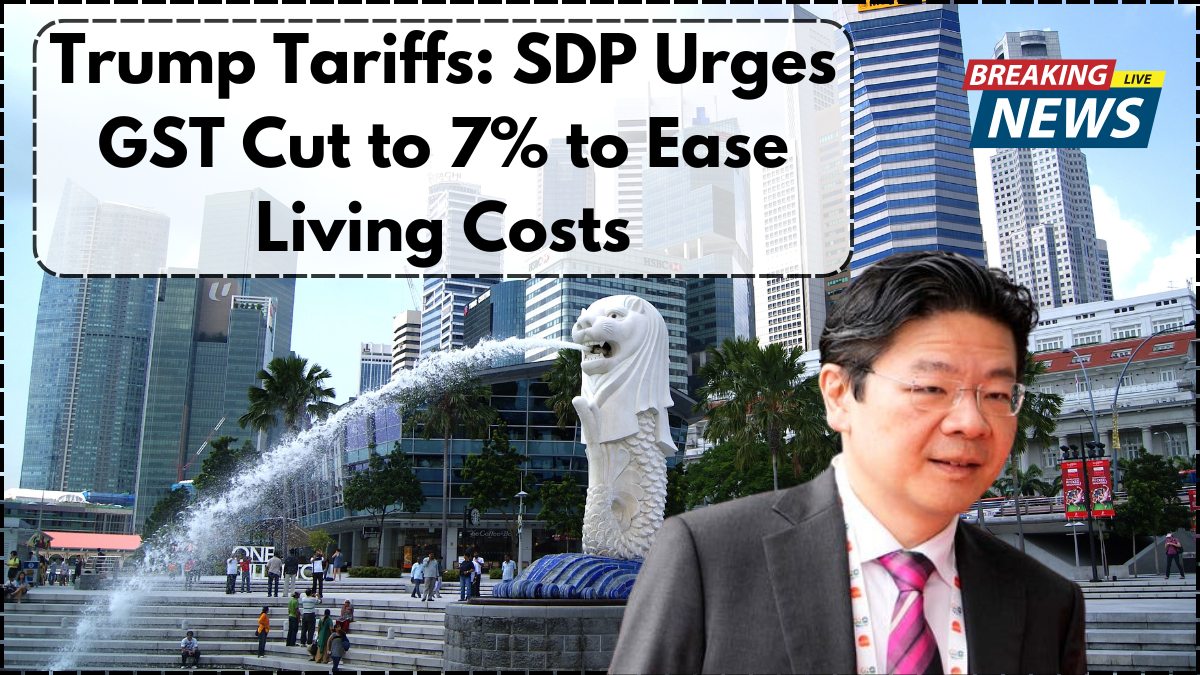In response to the recently announced trade tariffs imposed by the United States in April 2025, the Singapore Democratic Party (SDP) has urged the government to swiftly reduce the Goods and Services Tax (GST) from its current rate of 9 per cent to 7 per cent. The party argues that this reduction is a necessary and timely intervention to counteract the anticipated rise in the cost of living, while also stimulating local economic activity.

US Tariffs Introduced in April 2025 and Their Impact
On April 2, 2025, the US administration under President Donald Trump reintroduced a set of sweeping tariffs, implementing a standard 10 per cent tax on all imports. Countries considered to have engaged in “unfair trade practices” face even higher tariffs. Although Singapore imposes no tariffs on American imports, it is nonetheless subjected to the baseline 10 per cent rate under this new policy.
This move has sparked concerns across Singapore’s political spectrum, with economic analysts warning that the tariffs could trigger increased import costs, decreased trade competitiveness, and inflationary pressures that may adversely affect jobs and wages.
SDP’s Policy Proposal: GST Rollback and Cost Control
The SDP’s proposed GST rollback is part of a broader initiative to address Singapore’s escalating living expenses. The party emphasized that a reduction in GST would ease the financial strain on households, particularly those in lower- and middle-income brackets.
Additionally, the party urged the government to review and revise several public service charges that were increased in the aftermath of the COVID-19 pandemic. These include:
| Service/Fee Type | Current Status (2025) | Proposed Action by SDP |
|---|---|---|
| Water Rates | Elevated since 2021 | Return to pre-COVID levels |
| Public Transport Fares | Incremental hikes yearly | Freeze or roll back hikes |
| ERP Charges | Higher congestion pricing | Reassess and reduce rates |
SDP insists that these adjustments are essential to keep daily essentials affordable and ensure a balanced, inclusive economic recovery.
Long-Term Vision: Restructuring for Economic Equality
According to the SDP, the GST rollback is not a standalone measure but the first in a series of policy shifts aimed at recalibrating Singapore’s economic structure. The objective is to foster a more equitable distribution of wealth and opportunities across society. The party reiterated its longstanding position that sustainable economic progress must be paired with genuine efforts to reduce income disparity.
The SDP also stressed that bolstering domestic consumption through lower taxes would provide businesses with a much-needed boost during this period of international uncertainty.
Political Landscape: Reactions from Other Parties
Prime Minister Lawrence Wong, in a ministerial statement delivered in Parliament on April 8, 2025, acknowledged the challenges posed by the new US tariffs. He announced the formation of a national task force to develop responsive strategies to support businesses and safeguard employment.
Meanwhile, the Workers’ Party (WP) advocated for a full-spectrum review of Singapore’s trade policies, urging immediate bilateral negotiations with the US. The WP emphasized the importance of maintaining economic sovereignty and flexibility in responding to unprecedented global trade shifts.
Similarly, the Progress Singapore Party (PSP) recommended that the government seek a fresh trade agreement with the United States. This, they suggested, could involve a mix of policy adjustments and strategic investment initiatives to maintain favorable trade conditions.
Conclusion
As Singapore navigates the uncertainties of April 2025’s global economic developments, domestic policy decisions will play a critical role in determining the nation’s resilience. The SDP’s call to reduce GST and roll back essential service charges reflects growing political consensus on the need to protect citizens from external economic shocks. Whether the government will adopt such recommendations remains to be seen, but the conversation around equitable economic reform is clearly gaining momentum.
FAQs
What is the current GST rate in Singapore as of April 2025?
The current Goods and Services Tax (GST) rate in Singapore stands at 9 per cent.
Why is the SDP proposing a GST reduction now?
The SDP believes that reducing GST to 7 per cent will help cushion the impact of the newly imposed US tariffs, alleviate rising living costs, and boost domestic consumption.
How would a lower GST benefit Singaporeans?
A lower GST would reduce the cost of goods and services, making daily necessities more affordable for consumers, especially those in the lower-income group.
Are other political parties supporting similar measures?
While not identical, other parties like the Workers’ Party and the Progress Singapore Party are also calling for policy shifts in response to the US tariffs, including new trade negotiations and economic safeguards.
What other costs does the SDP want the government to reduce?
The SDP is advocating for the reduction of post-COVID increases in water rates, public transportation fares, and ERP charges to pre-pandemic levels.
For More Information Click Here
Pari is a passionate writer known for captivating stories that blend imagination and reality. Inspired by travel, history, and everyday moments, Pari crafts narratives that resonate deeply with readers.




